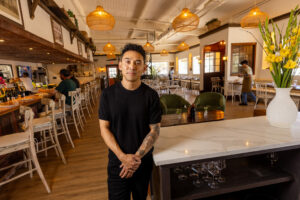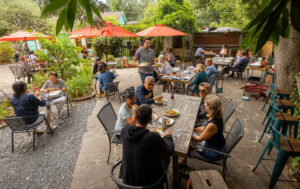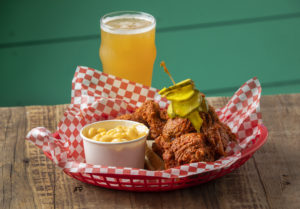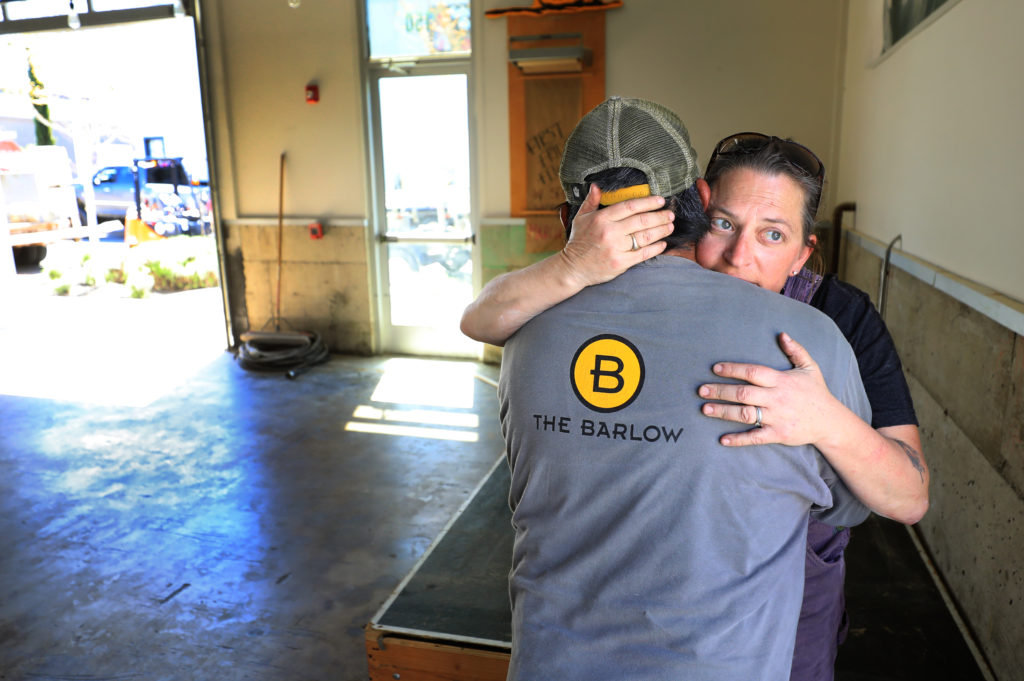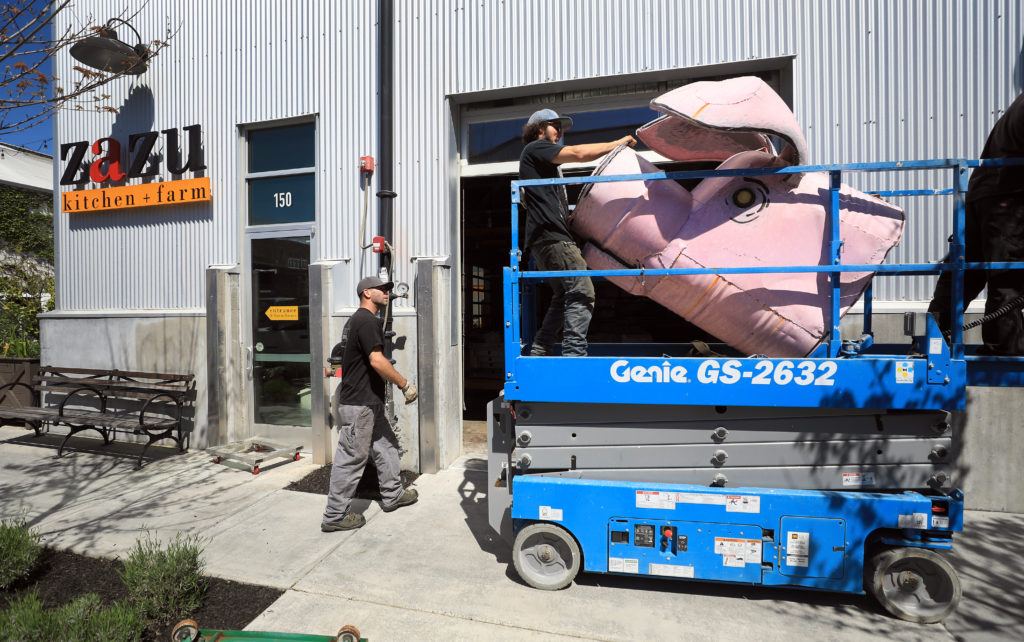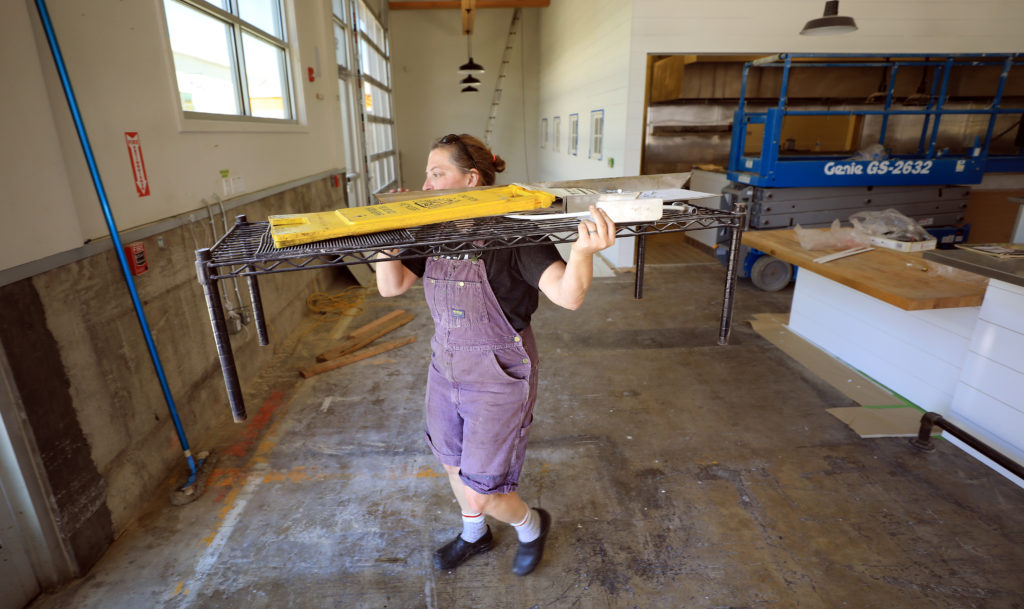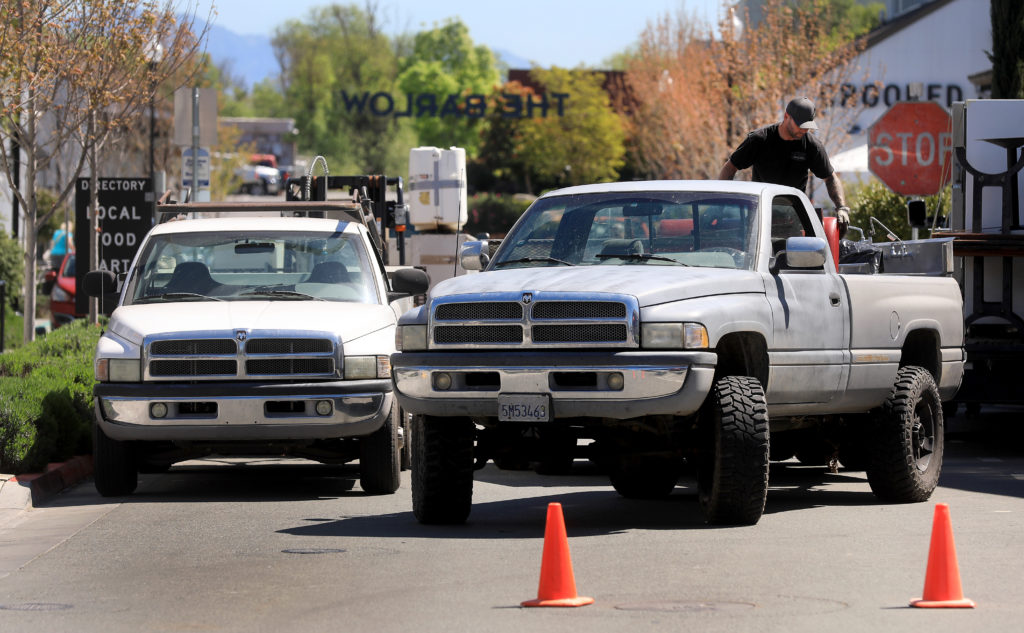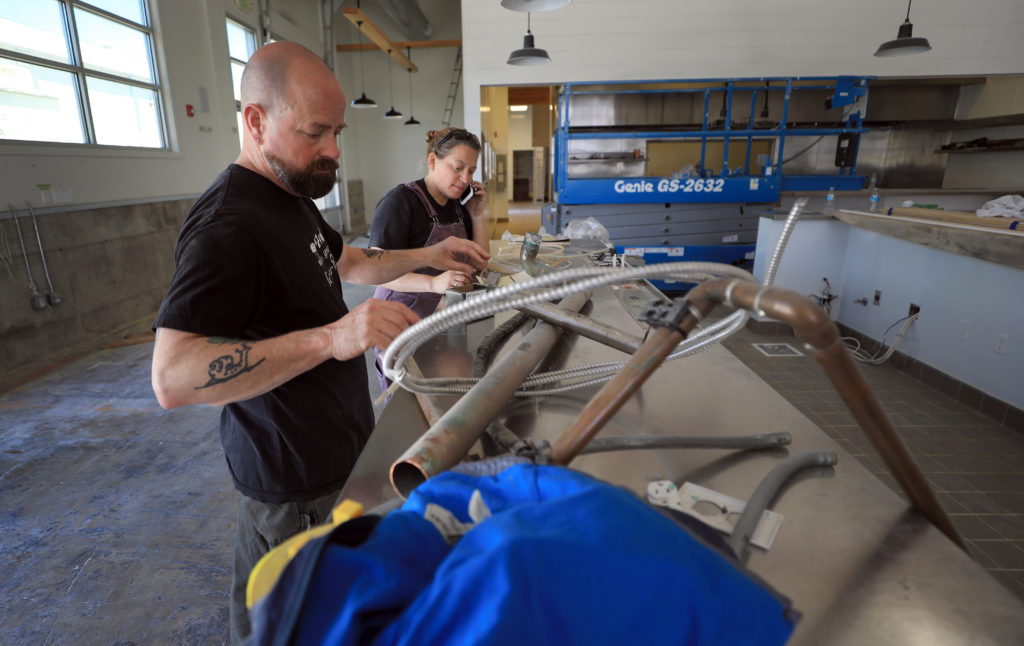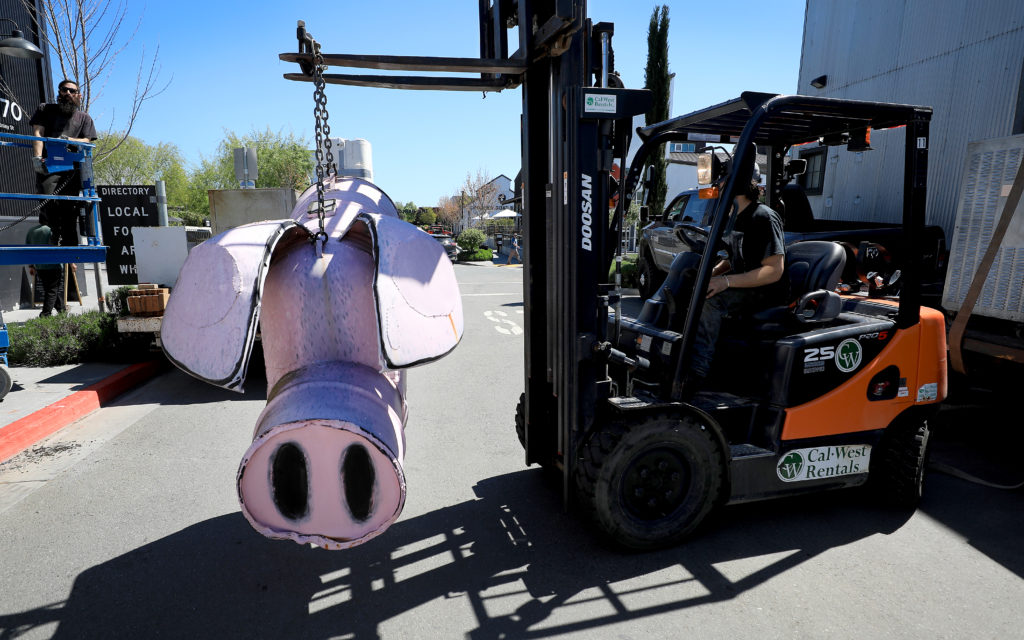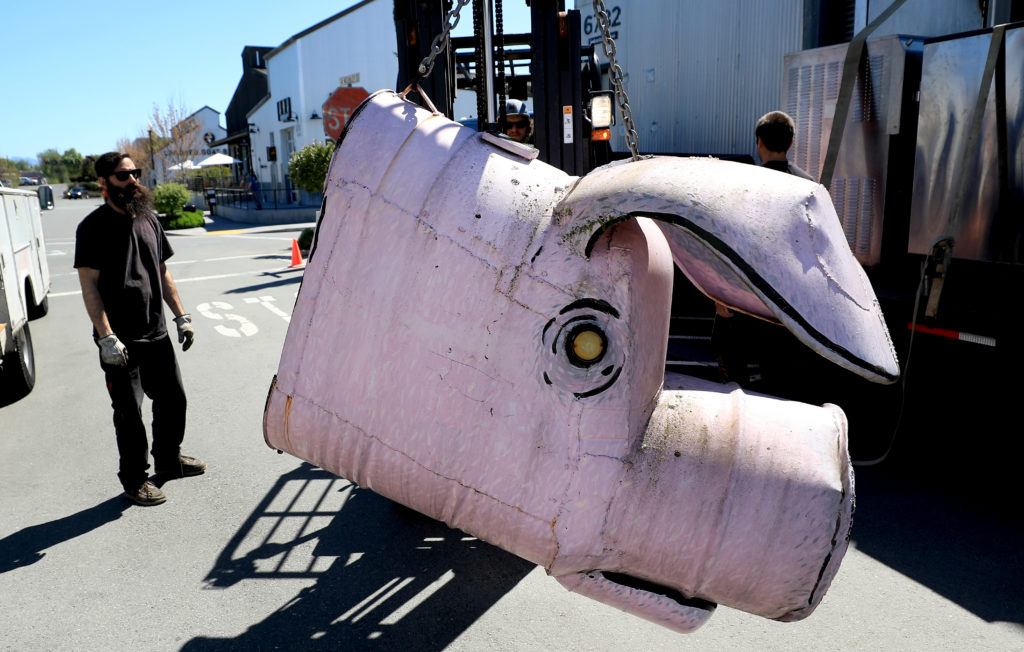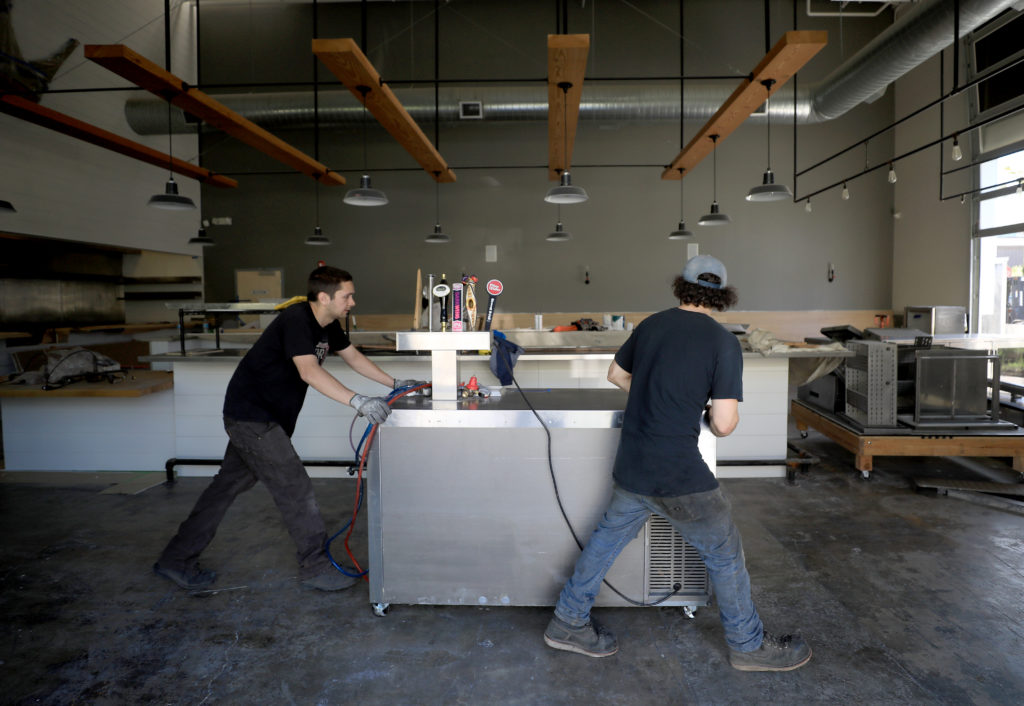Zazu Kitchen & Farm, one of Sonoma County’s high-profile restaurants, has left The Barlow two months after a major flood overwhelmed much of the upscale Sebastopol business district, dealing a crippling blow to shops and eateries that are struggling to reopen.
On Thursday, Zazu owners John Stewart and Duskie Estes began moving out what was left of their kitchen equipment — large pizza ovens, refrigerators and ranges — from the acclaimed Sebastopol location they’ve occupied for nearly six years.
Though reconstruction had progressed on the 3,600-square-foot restaurant, Stewart said that for now they are no longer occupying the building. Throughout the day, friends in the restaurant business brought flatbeds, trucks and brawn as the couple hastily packed up their equipment, sending everything to a shipping container at their home in Forestville.
Stewart said the exit stems from a communication breakdown with Barlow owner Barney Aldridge about the restaurant’s future after floodwaters in February caused an estimated hundreds of thousands of dollars in damage, leading to weeks of closure and layoffs for 35 staff members. Much of the restaurant equipment had already been moved off site while remodeling was taking place, but Stewart said the final straw was a rent-due notice emailed on Wednesday afternoon by Barlow management.
“We were really caught off guard,” Stewart said. His monthly bill including base rent, maintenance fees and taxes amounted to $8,000 per month, according to Aldridge. As one of the earliest occupants of The Barlow, Zazu’s rent was among the lowest, Aldridge said.
But with no income to cover rent, the couple couldn’t see how to move forward.
“We can’t occupy the building. There’s just no way we can open. I mean if there’s no way to get to the bathroom, you’re not opening,” said Stewart.
Zazu had several years left on its long-term lease, and its departure is the most significant exit yet of a flood-affected business at The Barlow.
Aldridge said he was shocked to see trucks pulling up to the restaurant Thursday morning and removing equipment. He said he remained committed to Zazu’s reopening, having hired workers to put up drywall and sanitize equipment. He said the rent-due notice sent to Stewart and Estes was in response to a letter from the couple’s attorney stating that they were not reopening.
Calls to the couple’s attorney were not returned Thursday.
“I’m there talking to them every day. I’ve been rebuilding their restaurant,” said Aldridge. “I want to be supportive of John and Duskie. They’ve worked super hard and we’ve been glad to have them, but if they’ve officially decided to move on … there’s not much that I can do.”
He said other restaurateurs have already shown interest in the Zazu location.
Nearly half of the roughly three dozen businesses in the chic shopping area were affected by floodwaters, with a handful declared a total loss. Zazu was swamped with 22 inches of water contaminated with gasoline and farm-runoff, requiring extensive cleanup, especially for food purveyors.
Their exit comes in the midst of several Barlow reopenings in the past two weeks, including Barrio Cocina Fresca and Community Market, along with Wm. Cofield Cheese and several retail businesses. Barrio owner Carlos Rosas and Village Bakery owner Patrick Lum said Barlow management have been responsive and financially helpful. Village Bakery, an anchor tenant, has signaled it hopes to reopen by early summer.
Friends and family of the Zazu owners set up crowdfunding sites that have brought in an estimated $70,000 so far, but the couple says that’s well below what it would cost to open the doors again.
“We have to come up with a really substantial amount of money to reopen,” said Stewart.
Natural disasters like fires and floods notwithstanding, restaurants already face significant hurdles just to stay open in high-cost parts of Sonoma County, according to former chef Lisa Hemenway, who now works in commercial real estate.
“It’s a very hard time to be in the restaurant business,” she said. Soaring rents can range from $2 to $2.25 per square foot in addition to costs for maintenance and taxes, often referred to as “triple net.” Just opening a restaurant usually costs at least $150,000, and profit margins are typically slim.
“People go into it for passion, and you end up in the school of hard knocks. What’s the magic formula? I can’t tell you, but I’m looking at profit and loss statements every day trying to help these restaurants,” Hemenway said.
Stewart and Estes were among those at the front lines providing aid during the October 2017 wildfires, cooking with celebrity chef Guy Fieri for first responders and fire victims for more than a week.
“It’s hard to be on the other end of needing help. It’s one thing to be high-fiving first responders. It’s been another thing to ask for help,” said Stewart.
Stewart said he hasn’t identified another potential home for the restaurant, but said he also isn’t quitting the business. “Owning a restaurant is all about crisis management. I can handle a crisis. We’ll figure this out,” said Stewart.




